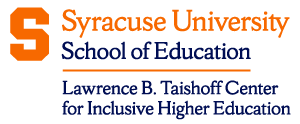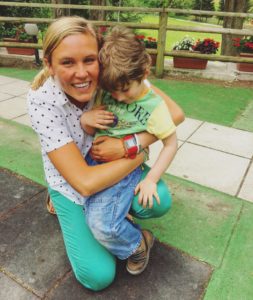I wasn’t home from my semester at Syracuse University for even a week when I left New Jersey to embark on my five-week journey to Fermo, Italy where I would be working at a school’s psychology department with kids and young teens with autism. There I was, a 20 year-old college student with two years under my belt as a Psychology/Communication Science and Disorders major about to be thrown into a country where I didn’t speak the language, nor did I have a clue about where they stood on the terms of disability/accessibility, what disability meant to them, and how their students were taught or treated. Needless to say, I was nervous.
My first day I got dropped off at the school and my boss (who spoke very little English) showed me around. He basically introduced me to everyone as the American studying to be an autistic expert…(I quite honestly didn’t have the heart to correct him nor could I completely explain to everyone there exactly what my plan is for the future because of the language barrier). At first I was frustrated that I couldn’t communicate well with the teachers and students. I shadowed the psychologists and teachers, took notes, and observed the children. I saw the similarities in how they evaluate cognitive, social, and motor skills. I saw the differences, in this particular school, in how secluded they were from mainstream classrooms and how, even as the sister school of a bilingual institution, these students were not allowed to learn English.
During my time at the school, I was asked if I could be the head of their basketball program. They needed someone to set up drills and mini practices for the students. I guess when you see a 5’10 American girl you assume she must be a stellar basketball player. Between you and me, I’m no Brianna Butler (I wish). However, I learned quickly that giving my time to work with these students on motor skills, social activity, and focus was nothing compared to what I would gain from them. Everything I did I had to act out. I spoke loudly and slow in English so some of the aides could pick up on what I was saying. I used Italian here and there, but really that wasn’t of any use. For the first time in my life, I was finally implementing what I learned in the classroom: speech is only one form of communication.
On one particular day, as we were in that run-down gym going through simple drills and learning how to shoot a basket, one of my students removed herself from the group. She cradled herself in a corner where she started to scream and repeatedly hit her head with her hands. I watched from afar and I noticed that she started to calm herself down by making a repeated movement where, in sequence, her hand would hit her chest, then her fingers would snap, and she would end by putting out her right hand looking for a high five. I said to myself, “No way. No way is Sofie doing what I think she’s doing.” I slowly walked over as she repeated the steps. I knelt down so our knees touched facing each other and just like that,
“Boom snap clap
Ba boom snap clap snap
Boom snap clap
Ba boom snap shh!”
As the psychologists and aides saw what I was doing, they were amazed. In that moment in time, everything made sense. The world around me was gone. All I could hear was the rhythm of us playing this beautiful game that I played as a young girl. Not a word was said, not a cue was given. It was two friends sitting down, playing a game, and sharing smiles. I was so overwhelmed in emotion I wanted to cry right there in front of her. It’s moments of love like those that make the vigorous and grueling days just disappear. You realize that there is something so much bigger out there.
I am so fortunate for the opportunity I was given in Italy and I know I could have never have gotten there without the place I am so fortunate to call home- not only Syracuse University, but as a Peer Trainer for the best family in the world, my InclusiveU family.
About the author: Tori Cedar is a junior at Syracuse University and a Peer Trainer for InclusiveU’s program, Peer-to-Peer. She’s a Psychology and Communication Sciences and Disorders double major. She’s actively involved on campus as a member of OrangeSeeds, a first year empowerment, service, and leadership program, as well as a member of the Disability Student Union. She serves on the leadership team for OttoTHON and is a volunteer with Camp Pals Philly Summer Camp for young adults with Down’s syndrome.

